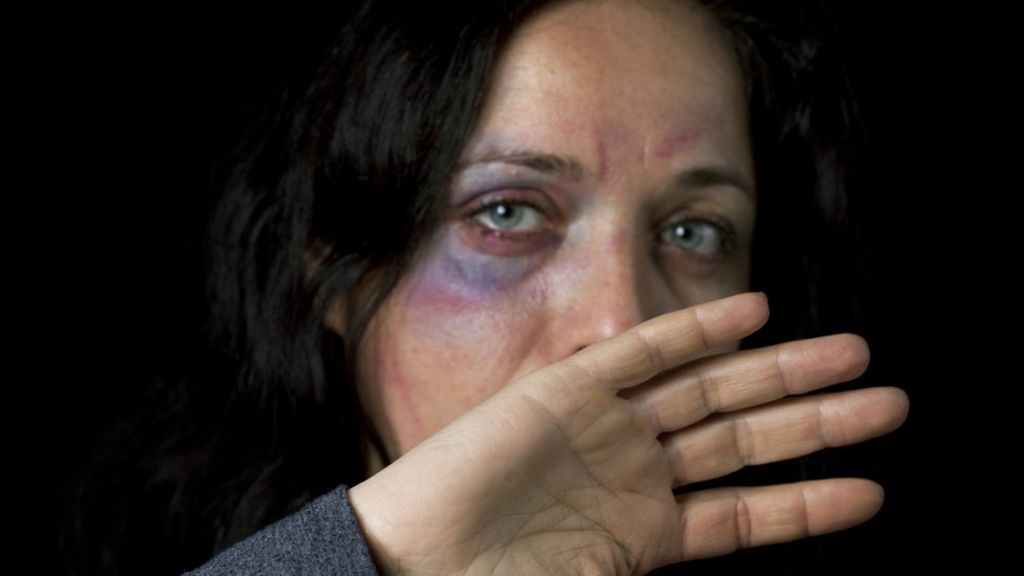This is a delicate subject. Let me tell you why, because when there is abuse and its someone else abusing you whether it be physically, due to violence, verbal abuse, as in emotional abuse, or any other violation toward you or a loved one. Its pretty scary, abuse is abuse. Especially when it effects your everyday peace or regular way of life.
Let’s call what it is. ABUSE! There are some steps you will need to take for yourself. Be honest to yourself. Try to identify the conditions, or the experiences that are true about your life. Try to be as real as you can about your life. How safe are your children? How safe are you? What can you do about it? Do you feel out of control of your own life and safety?
Deciding what to do is one the most difficult things to consider. Believe me, I know. One of the common characteristics of a person who has experienced emotional injury has the tendency to want to be “alone.” “I can do this by myself.” “I will trust in the Lord and the Lord only.” And, “I will not reach to any other human being for help,” “no one needs to know.” It’s embarrassing and you do not want to appear to be weak, or “wrong.”
That sounds like a step of faith, and for some people it is. But these words are sometimes words that come out of someone who wants to avoid anything that might be threatening, fearful, may have lost faith, or touch with reality. Sometimes, we feel like we have no support, or encouragement, and understanding.
My story. I was married to a very abusive man. On top of that he drank frequently, but not enough to fall asleep due to extreme drinking. But he drank, I knew I was going to get a beating. I was afraid for my children. I too felt alone. I had family, but did not want them to get involved because I was afraid, he could hurt them too. He said so, and I believed him. I felt so hopeless.
One night, he came home drunk, and beat me.
The next day, I went to work and my co-worker saw my face. “Why do you stay with that man?” I was afraid of him. My sweet and understanding co-worker took me to the hospital.
He had broken my nose, cracked my skull. I looked at myself in the mirror in the ER. I also had a black eye, it was swollen. Couldn’t see too well out of it.
I was a J. W. back then, and very religious. Anyway, I left him the next day. But I could not do it alone. The doctor stated he felt I was suffering from “Battered Wife Syndrome.”
Back then, doctors we not required to report these incidents to the police. But he did ask me, “Why was I still with this person?” “Do I not care what will happen to my Kids, if this man kills me?” “Who is going to love them and care for them, if something happens to me?” I went home and thought about this.
Battered Wife Syndrome is a pattern of signs and symptoms displayed by a woman who has suffered persistent intimate partner violence. Whether it is psychologically, physically, or sexual violence from her partner. It is classified in the ICO-9 as Battered Person Syndrome. But is not in the DSM-5 diagnosis book as a sub- category of post-traumatic stress disorder (PTSD).
My friend who took me to the hospital helped me. I owed her my life. She gave me the courage to call the police and we stayed at her house. The next day, my friend helped me get a “restraining order.” He could not come within 500 feet of me. I was finally, safe!
What can you do to stop this abuse?
- First call the National Coalition Against Domestic Violence Hot Line 1-800-799-7233 (safe)
Open 24 hours, 7 days a week, 365 days a year.
- Get yourself and/or your children to a safe place. Other resources can take you to a “women’s safe house.” Call 911 this helps tremendously, because documentation is extremely important.
- Very soon after- get help through the Department of Health and Welfare. They can help with the basic’s necessities of daily life.
- They can also refer you to professional assistance or a therapist for your PTSD. You will later be aware how you will benefit from this.
- Take your time to get your zest for empowerment for you and your children
- Join as many support groups as you can and stay with the ones that make you feel good. Look for support groups in your area.
It will be an enormous help for you to be able to get together with others who know exactly what you’re going through and who have already discovered ways of responding to it.
We have confidence in you. You can make a difference in peoples lives. We are here to tell others that there is hope.
